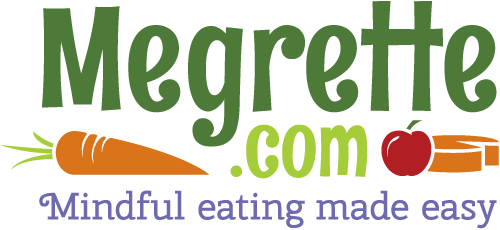Creating a practice requires you to return, over and over again to the present moment. Unfortunately, many people are highly skilled at being self-critical. They don’t want to return to the thing that is hard, or that they feel inadequate at. This internal judgment and dread can be so habitual a person is almost deaf to the snarky, biting comments swirling around in their mind. The following activity can guide you in creating a practice that meets your needs.
Activity
Excerpted from The Core Concepts of Mindful Eating
Below is a list of feelings. These are feelings which often arise when your needs are being met. When you are eating, you can check in with your feelings and notice the quality of emotions present. In short you can ask, “Are my needs being met?”
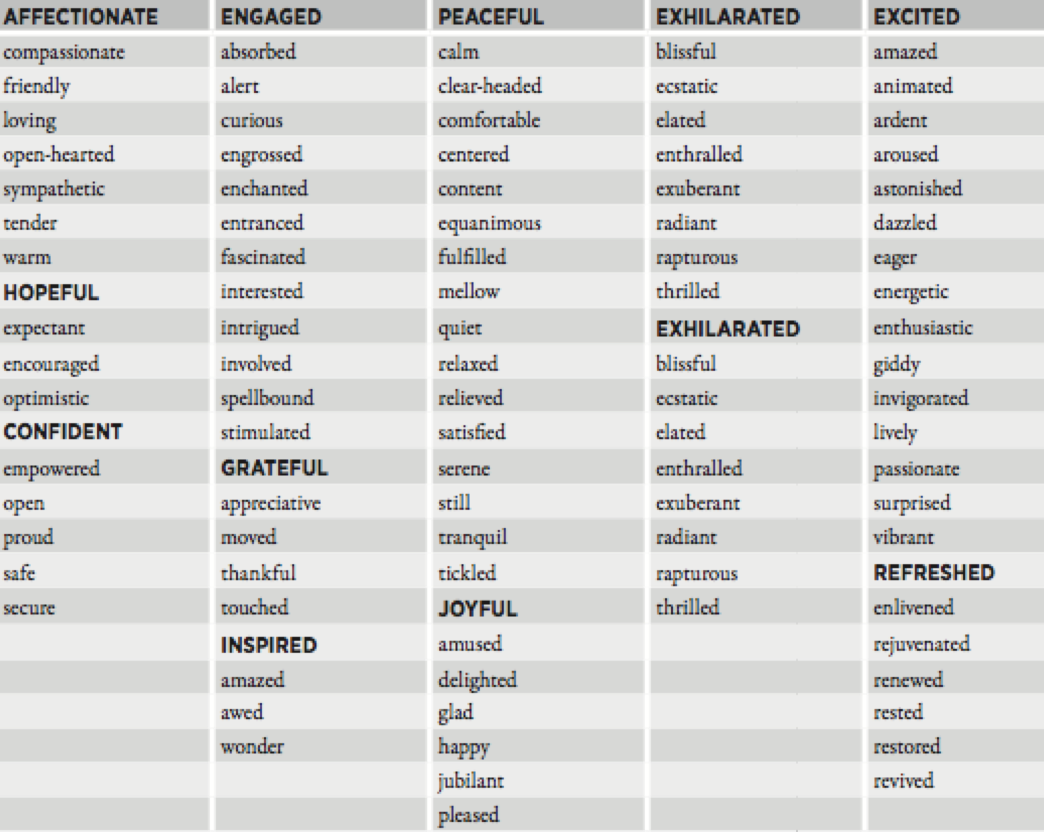
These are feelings that arise when your needs are NOT being met. When you are eating, you can check in with your emotions and notice what feelings are present. In short you can ask, “Are my needs being met or not being met?”
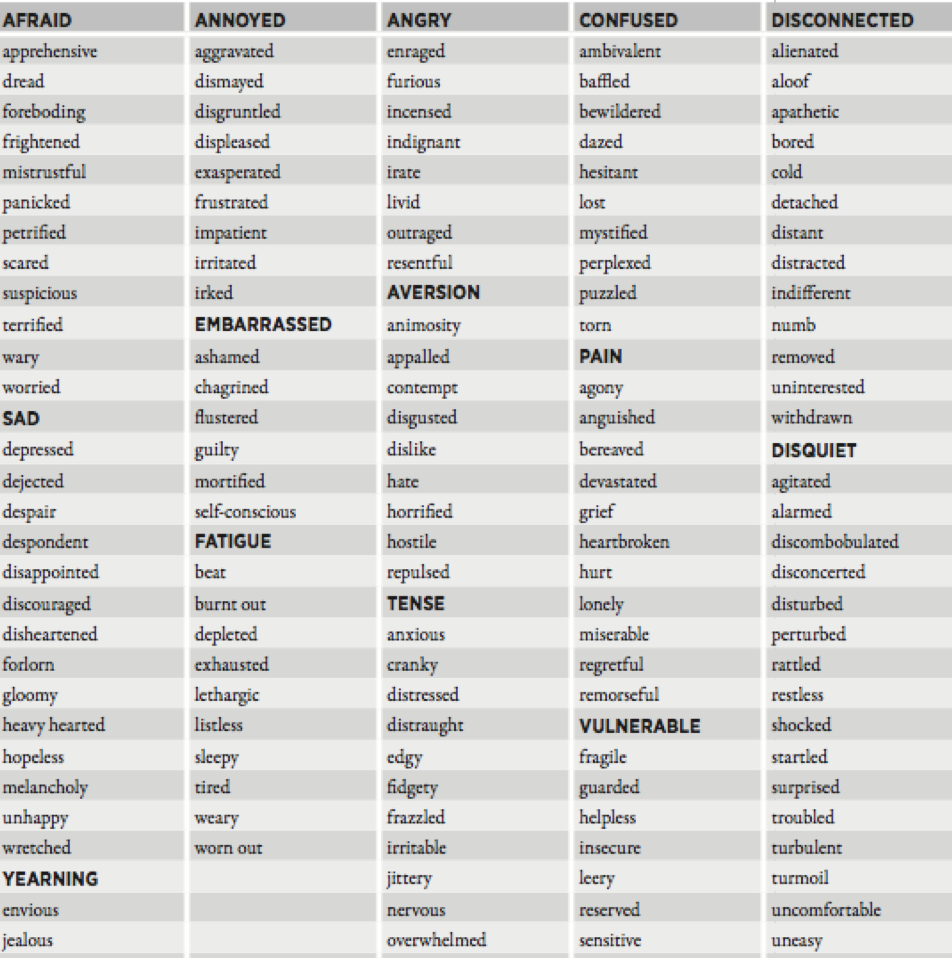
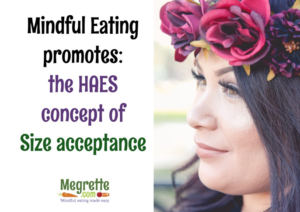 Refer any time you like to these two lists to explore whether your needs are being met. If they are, congratulations! If they aren’t, what options are present for you to meet them? Dig deeper than “If I were thin, looked better, or lost weight then I would be happy.” Your needs are more complex than your size or diet and they deserve your time and attention.
Refer any time you like to these two lists to explore whether your needs are being met. If they are, congratulations! If they aren’t, what options are present for you to meet them? Dig deeper than “If I were thin, looked better, or lost weight then I would be happy.” Your needs are more complex than your size or diet and they deserve your time and attention.
Here is Lynn’s story:
I learned about mindful eating from a friend and something clicked. I started to think about what I really needed. I thought I didn’t need anything but after reading this list, I started to see I needed a whole lot more than ice cream or kale!
I realized I had no idea how to appreciate myself or trust my own body. I had no clue what a balanced meal looked like or how to enjoy my food. I had always been so focused on being “good” and I never thought about what I really needed! The more permission I gave myself to simply “be” the more I realized, dieting was never going to meet my true needs.
The following is a list of needs to help you discover all the ways people try to use food to get their needs met. For example, you may need security, because your life is going through a lot of changes. Or maybe you need some harmony at home because work is stressful. Many people, myself included, are shocked by the diversity of our needs! Reading this list can guide you in this journey of exploration and help you discover your true needs!
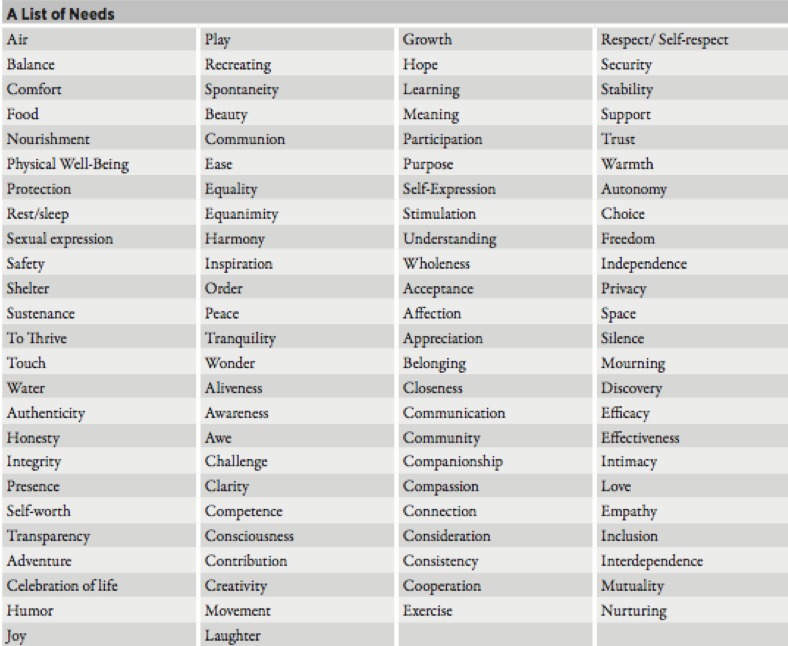
Allow yourself permission to have needs, to take up space, and to be someone who gives and receives care. This step requires you to accept yourself as you are right now. It also requires you to advocate for yourself and your needs.
Society is full of weight stigmas surrounding self-acceptance. It isn’t easy to advocate for yourself if you are above or below [x] size. It takes support to say, “I need to eat [x]” or “I don’t like [y]” or “I am not going to be hungry any longer” or “I am going to eat enough food to enjoy myself” or “I am going to meet my true needs and not eat to hide from them”. These acts of self-care are actually statements of defiance against weight and appearance based norms. So, go ahead, ditch the diet! Now go a little bit further and ditch the diet-mentality that you are “not allowed.” You are allowed! Compassionate self-care is about claiming your worth, because all humans need care.
It takes time to change and support to change your thoughts. Hold in your heart the reality that you are not alone in this journey. This January please consider joining the many folks who are celebrating Mindful Eating Day. Together we can help each other start the journey of compassionate self-care. Together we can provide support, encouragement, and empathy to reclaim your birthright of enjoying food, eating, and your body.
Sign up for my blog post or follow me on Facebook
The Spring session of Core Concepts of Mindful Eating LIVE for Professionals is starting. Save $50 if you sign up in March
